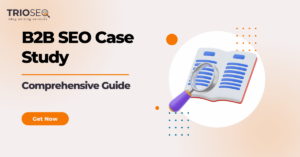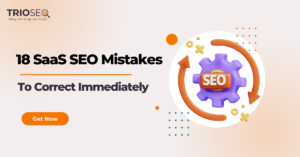The role of SEO in supporting marketing efforts in a digital economy is now well-established. Like special sauce, it requires learning the nuances, but once you’ve mastered it, the results are worth the learning curve!
If you’re onto perfecting it and want to know how long it takes to learn SEO, then read on. Complete with handy hints, a roadmap, and a realistic timeline for mastering SEO, this guide makes learning SEO for beginners easily achievable.
Quick Answer: How Long Does it Take to Learn SEO
A straightforward response based on our years of experience and proven record in the SEO space is that it takes around 7-12 months to gain SEO mastery.
The actual time would depend on factors encapsulated below:
- What is your primary purpose for using SEO, and how does it align with your goals?
- What is your current SEO and tech proficiency for efficient learning?
- Are you doing a self-paced program or a time-based course?
- How flexible is your schedule for regular SEO learning commitments?
- How determined are you to master SEO?
- What educational materials and support aid your effective SEO learning?
We’ll delve into each factor soon after looking at some fundamental considerations beginners have about their SEO journey.

Quick Questions Before Diving In
Perhaps you’re wondering is SEO easy to learn, or how long to learn SEO. The answers to basic questions about learning SEO for beginners are covered below, offering you greater clarity and confidence.
Is SEO Hard To Learn?
Learning SEO isn’t difficult. Mastering SEO may seem challenging at first due to the abundance of information on search engines and optimization. However, a steady and structured learning approach helps you focus on crucial SEO aspects and gradually build skills.
Why Should I Learn SEO?
SEO helps enhance your website rankings, drives more traffic, and builds trust with potential customers. So, if you’re an entrepreneur, learning SEO and then implementing it in your website content can help expand your potential for sales and leads.
Given its vast potential, acquiring SEO skills helps those considering careers in SEO and digital marketing to unlock better job opportunities and salaries. Moreover, the dynamic nature of SEO ensures continuous learning opportunities.
Can I Learn SEO on My Own?
If you’re thinking, “How do I learn search engine optimization on my own?” then be sure that learning SEO on your own is possible.
You can learn SEO on your own through free tutorials and podcasts. You could also look at TrioSEO’s blog and newsletter. If you enjoy experimenting with software, watching videos, and reading guides, self-teaching can be an effective way to learn SEO.
That said, individual learning styles and curves vary. Therefore, most aspiring SEO professionals prefer a structured class with an instructor to simplify and organize the process.
Can You Learn SEO Online?
Indeed, free and paid online resources offer SEO tutorials and courses to meet your learning needs. Free options are suitable for initial exploration, with some providing extensive content and certificates.
Even so, while free options are beneficial, investing in a paid course may offer a more focused learning experience. Paid online SEO courses often conclude with an exam, though some can be accessed for free if you don’t require the completion certification.

6 SEO Factors That Influence Learning Time
As we all have unique learning journeys, the question, “How long does it take to learn SEO?” resonates differently for each.
Let’s look into the key SEO factors that impact how fast you can master SEO:
1. SEO Goals and Objectives
Mastering SEO requires time, effort, and consistency, especially when learning keyword research, technical SEO, and link building. Setting learning blocks and realistic targets helps you stay focused. Tailor goals to your availability and resources for effective learning.
2. Prior Experience and Tech-Savviness
Pre-existing SEO knowledge expedites understanding of advanced concepts compared to beginners. Your comfort level with technology also impacts SEO learning time. Tech-savvy individuals familiar with coding or websites grasp technical SEO faster.
3. Time Availability for Learning
The speed of learning SEO depends on time commitment. Invest 2-4 daily hours in hands-on practice and experimentation to learn SEO quickly. Notably, strike a balance between speed and how to learn SEO step-by-step through testing and experimenting.
That said, if you pursue SEO full-time sincerely, you’ll likely master the basics of SEO in 1-2 weeks.
4. Personal Persistence and Motivation
While SEO mastery develops over time, your initial motivation significantly accelerates learning. You will also find overcoming challenges and staying persistent in your practice more manageable if you’re committed to the program.
5. Learning Resources and Tools
Abundant high-quality resources, access to reputed websites, and sufficient budgets broaden your learning range. However, beware of fake SEO experts peddling unreliable information for their profit.
Using Google Search Console, Analytics, and other keyword research tools also speeds up your learning process.
6. Mentorship and Guidance
Working with an SEO expert or mentor helps enable quicker learning through shared insights and guidance, along with practical exposure to SEO work in progress. An office setup also enhances understanding of how SEO components fit together.

What is the Best Way to Learn SEO?
Once you’ve decided to study the intricacies of SEO, it’s time to let go of your initial niggles about how long it takes to learn SEO. Instead, read up on our top cues to learn and ace SEO.
Understand SEO and Content Marketing Basics
SEO and content marketing are aspects of digital marketing. Begin your journey by undertaking to:
- Learn the fundamentals of SEO, how it works and the types of SEO.
- Gain essential skills for SEO mastery, such as keyword research, content optimization, and link building.
- Study various formats like blogs, posts, videos, images, interactive tools and calculators, and worksheets to deliver more engaging information.
Learn Keyword Research and Content Planning
Gravitate your attention toward keyword research. Consider these helpful hints to optimize your learning experience:
- Apply SEO tools like Google Keyword Planner, Ahrefs, or Semrush, enhance your keyword research skills, and identify target keywords for your content.
- Target broader keywords initially and progressively learn to optimize for more specific long-tail variations.
Learn On-Page SEO Fundamentals
Gradually progress to on-page optimization. Your learning should help you accomplish the following:
- Create quality content aligned with user intent.
- Implement the website’s text, keywords, images, tags, and internal links for optimized SEO.
At TrioSEO, our specialist on-page SEO services have helped clients optimize their websites and boost search-driven revenues. You can explore on-page SEO fundamentals at TrioSEO’s resource hub for tips on how to learn SEO step-by-step.
Understand Off-Page SEO Strategies
Start learning off-page SEO techniques for building trust with search engines. Effective strategies help you to:
- Build backlinks wherein other reputed websites link to your site and help your pages rank higher.
- Earn backlinks and brand mentions through social media engagement and digital content marketing to attract site visitors.
- Leverage listing tools like Google Business Profile and managing reviews.
TrioSEO’s off-page SEO contains insights on domain authority, backlinks, and social signals to further your SEO knowledge and enhance online visibility and ranking.
Create a Website and Start Testing
Once you’ve established an understanding of critical SEO practices, it’s time to put your skills into action. Learning SEO for beginners can be an interactive experience wherein you start to:
- Create your website to offer high-quality content optimized for rankings and provide value to your audience.
- Experiment with SEO strategies. Testing outcomes becomes a hands-on and effective way to gain practical insights and skills.
Analyze Results and Make Improvements
Even with advanced SEO skills, your site may underperform. For this reason, at TrioSEO, our team follows a meticulous process, including audits and analytics, to enhance web content and organically increase web traffic consistently.
Likewise, you can optimize your learning curve by developing skills to:
-
Organize and administer SEO audits using tools like Google Search Console and Analytics or an SEO report template for efficiency.

Estimated Timeline to Learn SEO
If you’d like insights into “How long does it take to learn SEO?” explore the estimated timeline outlined below. The information will help you establish realistic expectations and set milestones for your SEO learning journey.
First Month – Fundamentals
In the crucial first month, mastering the fundamentals sets the stage for a comprehensive understanding of SEO principles. Start by focusing on:
- Fundamentals and an introduction to SEO
- Search engine mechanics, which include crawling, indexing, and ranking
- Essential aspects of keyword research and on-page optimization
Second Month – Intermediate Skills
By the second month, your lesson plan should help you:
- Gain expertise in advanced on-page SEO techniques.
- Optimizing title tags, header tags, image alt tags, and meta descriptions using long-tail keywords should be on your to-do list for the month
- Get started with off-page SEO practices, emphasizing understanding the fundamentals of link building.
Third Month – Advanced Concepts
You should now be ready for more advanced concepts to evaluate your SEO efforts. At this stage, you should do the following:
- Focus on technical SEO components comprising site organization, SERP analysis, schema, mobile-friendliness, speed, XML sitemap, and URL for optimal rankings. Our technical SEO resources can support your study of these advanced concepts.
- Use SEO tools like Google Search Console to discover traffic sources and keyword insights and Google Analytics to uncover valuable metrics on user behavior.
Months 4-6 – Strategy Development and Application
Having invested significant time in SEO theory, you are now ready to apply your SEO knowledge in practice. As the intensity evolves, you’ll likely need to allocate more time to implement the following:
- Launch a blog, incorporating daily keyword research and optimizing content.
- Enhance your skills and attract organic traffic by developing engaging content.
- Conduct comprehensive site audits using tools like Ahrefs, optimizing performance by leveraging technical and on-page SEO.
- Begin building backlinks from reputed sites within your industry.
Months 7-12 – Moving Towards Expertise
You are now poised to navigate the SEO space in the last leg of your training. Nonetheless, this phase is critical to keep you ahead of your competition.
To ensure long-term success, focus on the following:
- Regularly analyze your online presence through tools like Google Analytics.
- Identify and resolve SEO issues to ensure that your site performs optimally.
- Continue to learn SEO through various courses and gain certifications as skills enrichment is ongoing.
- Stay up-to-date on the latest developments and algorithm changes to maintain a relevant SEO strategy.

Frequently Asked Questions
Are you curious about learning SEO for beginners and other levels? Our FAQ section provides essential insights to make informed decisions.
Does Prior Experience in Marketing Help You Learn SEO?
SEO specialists often come from diverse backgrounds. It would help if you had relevant skills and a genuine passion for the job. Having marketing experience is advantageous due to the close relationship between SEO and marketing.
Is it Possible to Stay Updated With SEO Trends as a Beginner?
Absolutely! As a beginner, the following practices can help you stay updated on SEO trends:
- Subscribing to newsletters, following experts
- Participating in forums
- Attending live sessions
- Using SEO tools
- Reading blogs
What Are Common Challenges Beginners Face When Learning SEO?
Common challenges for beginners learning SEO include keeping up with Google algorithm changes, addressing low SERP ranking through targeted strategies, and tackling keyword issues.
Additionally, mastering web vitals, handling internal redirects, creating unique title tags and meta descriptions, and prioritizing mobile optimization are vital to successful SEO learning.
Conclusion
In conclusion, undertaking a journey to learn SEO is an excellent investment in your digital presence. The key to SEO expertise is continuous learning, analysis, and staying abreast of evolving trends.
If you’re looking for advanced and personalized SEO consultancy for your business, please reach out to us at TrioSEO. Our comprehensive approach has helped optimize our clients’ online success, and we’d be glad to help you, too!




![Featured Image - Mental Health Content Writing [Best Practices and Ethical Considerations]](https://trioseo.com/wp-content/uploads/2024/05/Mental-Health-Content-Writing-Best-Practices-and-Ethical-Considerations-300x157.png)
![Featured Image - Beginner’s Guide to CBD Content Writing [Tips Included]](https://trioseo.com/wp-content/uploads/2024/05/Beginners-Guide-to-CBD-Content-Writing-Tips-Included-300x157.png)

![Featured Image - [Ultimate Guide] SEO For Tech Companies That Outranks Competitors](https://trioseo.com/wp-content/uploads/2024/04/Ultimate-Guide-SEO-For-Tech-Companies-That-Outranks-Competitors-300x157.png)

![Featured Image - B2B SaaS SEO - Ultimate Guide [Strategy Included]](https://trioseo.com/wp-content/uploads/2024/04/B2B-SaaS-SEO-Ultimate-Guide-Strategy-Included-300x157.png)

